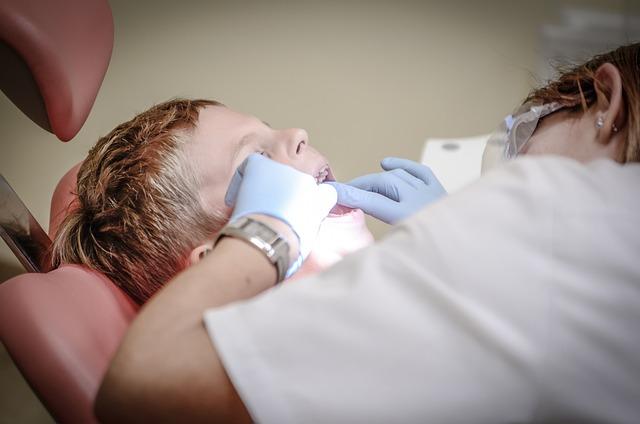Comparison of the Best 8 Toothpaste Alternatives!
Toothpaste is an important element in oral hygiene. However, there are a variety of alternatives that can be used in place of toothpaste. These alternatives include baking soda, hydrogen peroxide, sea salt, and even activated charcoal. Each of these alternatives has its own advantages and disadvantages, and it is important to understand how each of them can affect your teeth and oral health. In this article, we will discuss the various options for what can be used instead of toothpaste and how to use them.
1. Baking Soda: Is it a Viable Alternative to Toothpaste?
Baking soda has become a popular alternative to traditional toothpaste for those looking for natural solutions to oral health care. While its effectiveness as a dental hygiene product has not been scientifically proven, its proponents cite its ability to reduce plaque and prevent cavities. This article will discuss the potential benefits and drawbacks of using baking soda as a toothpaste substitute.
First, it is important to note that baking soda is a mildly abrasive material, meaning it can help to remove surface stains from the teeth. Additionally, baking soda has a slightly alkaline pH, which may help to neutralize the acidity of plaque and reduce its accumulation. Furthermore, baking soda is a natural source of fluoride, which is an important element in cavity prevention.
On the other hand, baking soda does not contain the same ingredients as toothpaste, such as triclosan, which helps to control bacteria. Additionally, baking soda does not contain any foaming agents, meaning it may not be as effective at removing plaque as traditional toothpaste. Furthermore, prolonged use of baking soda has been linked to enamel erosion, which can cause sensitivity and discoloration of the teeth.
What Are the Pros and Cons?
Baking soda toothpaste has become increasingly popular as an alternative to traditional toothpastes, due to its ability to effectively remove plaque and freshen breath. However, there are both pros and cons to using baking soda toothpaste.
Pros:
• Baking soda is an effective, natural cleanser that helps to remove plaque, freshen breath, and reduce acidity in the mouth.
• Baking soda toothpaste is usually less abrasive than other types of toothpaste, which can help protect tooth enamel.
• Baking soda toothpaste is often more affordable than other types of toothpaste.
Cons:
• Baking soda is highly alkaline and can change the pH balance in the mouth, which can lead to an increased risk of cavities.
• Baking soda toothpaste may not be as effective at fighting gingivitis and other gum diseases as other types of toothpaste.
• Baking soda toothpaste can be too abrasive for people with sensitive teeth or gums.
In conclusion, baking soda toothpaste has many benefits and can be a great option for some people, but it is important to consult with a dentist or oral health professional before making the switch. With the right care and attention, baking soda toothpaste can be a safe and effective way to maintain oral health.
Ultimately, the decision to use baking soda as a toothpaste substitute is a personal one. Those looking for an all-natural solution may choose to incorporate baking soda into their oral hygiene routine. However, it is important to note that baking soda is not as effective as traditional toothpaste at controlling bacteria and preventing cavities. It is therefore recommended that individuals use a combination of both baking soda and toothpaste to ensure optimal dental hygiene.
2. Coconut Oil
Coconut oil has been used as a natural remedy for centuries. Today, many people are looking for natural alternatives to traditional products, including toothpaste. While coconut oil can provide some of the same benefits as toothpaste, it may not be the best substitute for oral hygiene.
Coconut oil is composed of fatty acids, which can help reduce bacteria in the mouth. It also contains lauric acid, which has antibacterial and antifungal properties. These properties can help reduce plaque and prevent tooth decay. Additionally, the oil can help to reduce bad breath.
Despite its potential benefits, coconut oil may not be the best substitute for toothpaste. Coconut oil does not contain fluoride, which is essential for preventing tooth decay. Additionally, many people find the oil’s taste and texture unpleasant. Moreover, if too much oil is used, it can make brushing difficult and increase the risk of gum irritation.
If you are looking for a natural alternative to toothpaste, you may want to consider using a toothpaste that contains natural ingredients. Natural toothpaste is formulated with ingredients such as baking soda, essential oils, and herbs. These can provide the same benefits as traditional toothpaste but with fewer harsh chemicals.
In conclusion, coconut oil can provide some of the same benefits as toothpaste, but it may not be the best substitute for oral hygiene. If you are looking for a natural alternative, consider using toothpaste that contains natural ingredients. However, using coconut oil in addition to toothpaste may be beneficial for those who are looking to improve their oral health.
3. Hydrogen Peroxide
Hydrogen peroxide is widely used for various purposes, including oral hygiene. In fact, hydrogen peroxide is commonly used as a mouthwash or for teeth whitening. In this article, we will discuss the benefits of using hydrogen peroxide for oral hygiene.
The first benefit of using hydrogen peroxide for oral hygiene is that it is an effective antiseptic. Hydrogen peroxide acts as a disinfectant and can help reduce inflammation in the mouth. It can also help to eliminate bacteria and fungi, which can cause bad breath, cavities, and other oral health problems. Furthermore, hydrogen peroxide can help to prevent plaque buildup, which can lead to gum disease.
Another advantage of using hydrogen peroxide for oral hygiene is that it can help to whiten teeth. When used as a mouthwash, hydrogen peroxide can help to remove stains and discoloration from the teeth, resulting in a brighter and whiter smile. Additionally, hydrogen peroxide can help to remove tartar, which is a hard, yellowish deposit that forms on the teeth.
Finally, hydrogen peroxide can be used to relieve pain and discomfort associated with canker sores. When used as a mouthwash, hydrogen peroxide can reduce the swelling and irritation caused by these sores, providing relief from the discomfort.
In conclusion, there are several benefits to using hydrogen peroxide for oral hygiene. It is an effective antiseptic that can help to reduce inflammation, eliminate bacteria and fungi, and prevent plaque buildup. It can also help to whiten teeth and remove tartar. Finally, it can be used to relieve pain and discomfort associated with canker sores.
4. Salt
Yes, salt has a place in oral hygiene. In fact, salt is one of the oldest known dental care remedies. It is believed to have been used as early as 6,000 BC in India for dental cleaning and whitening. Salt is a natural antiseptic and can help prevent and treat oral infections. It can also help to neutralize the pH of the mouth, which can help to reduce the risk of cavities.
Salt can be used in a variety of ways to improve oral hygiene. It can be used as a mouthwash by mixing one teaspoon of salt in a glass of warm water. This can help to reduce bacteria and plaque in the mouth. It can also be used as toothpaste by combining equal parts of salt and baking soda. This can help to remove surface stains and whiten teeth.
Salt can also be used as a toothache remedy. A paste made of salt and warm water can help to reduce inflammation and pain. Additionally, gargling with a teaspoon of salt in a glass of warm water can help to reduce swelling and discomfort caused by a sore throat.
In conclusion, salt has a place in oral hygiene and has been used for thousands of years for its antiseptic, pH-balancing, and pain-relieving properties. It can be used as a mouthwash or toothpaste or as a remedy for toothaches and sore throats.
5. Apple cider vinegar
No, apple cider vinegar should not be used as a substitute for toothpaste. While it has some properties that may make it seem like a good option, it is not the best choice for maintaining good oral hygiene.
Apple cider vinegar is acidic and can erode enamel, the protective layer on teeth. It can also damage the gums and other soft tissues in the mouth. Additionally, it may cause irritation and burning of the mouth if it is not diluted properly.
Using apple cider vinegar as a substitute for toothpaste would be ineffective in removing plaque and bacteria from the teeth. Only toothpaste contains the necessary ingredients that have been proven to reduce plaque and bacteria buildup.
In addition to using toothpaste, it is important to brush your teeth twice a day and floss regularly. Eating a balanced diet and avoiding sugary and acidic foods and beverages can also help maintain good oral hygiene. Seeing a dentist every six months for a professional cleaning and checkup is also recommended.
6. Activated Charcoal
Activated charcoal is a natural teeth whitener that binds to surface stains and removes them. It is also believed to help reduce bad breath and fight gum disease.
Pros: Activated charcoal is widely available and very affordable.
Cons: It can be messy to use, and it can stain the sink or other surfaces if it comes into contact with them.
7. Natural Toothpaste
If you’d prefer to stick with toothpaste, there are several all-natural options available. Look for toothpaste that is free of fluoride, artificial colors, and other harsh chemicals.
Pros: Natural toothpaste is easy to find and use. It also contains natural ingredients that are beneficial for the teeth.
Cons: Natural toothpaste can be more expensive than conventional toothpaste. Additionally, it may not be as effective at whitening the teeth as other natural options.
No matter which all-natural teeth cleaning solution you choose, it’s important to adhere to a proper oral hygiene routine. Brush twice a day, floss daily, and visit the dentist regularly for checkups. Following these guidelines will help ensure that your teeth remain healthy and strong for years to come.
8. Homemade toothpaste
If you are looking for an easier, more cost-effective, and eco-friendly way to keep your teeth clean and healthy, then making your own toothpaste could be the answer. With a few simple ingredients, you can make toothpaste that is free from chemicals, preservatives, and artificial colors and flavors.
The first step in making homemade toothpaste is to gather the ingredients. These can include baking soda, hydrogen peroxide, sea salt, coconut oil, and essential oils. Once you have the ingredients, you can mix them together. Start by combining equal parts of baking soda and sea salt in a bowl. Add in a teaspoon of hydrogen peroxide and mix until it forms a paste. Then add a tablespoon of coconut oil and mix until it is all blended together. Finally, add a few drops of your favorite essential oil for flavor.
Once you have your toothpaste mixture ready, you can put it into a small container with a lid and store it in your bathroom. You can use it just like regular toothpaste by brushing your teeth with a soft-bristled toothbrush. Make sure to rinse your mouth with water after brushing.
By making your own toothpaste, you are avoiding the use of artificial colors, flavors, and other chemicals. You are also reducing your environmental impact since you are not buying toothpaste in single-use plastic tubes. Finally, you are saving money since the ingredients to make your own toothpaste are relatively inexpensive.
Making your own toothpaste is an easy and cost-effective way to keep your teeth clean and healthy. With a few simple ingredients, you can make a natural, eco-friendly toothpaste that is free from chemicals and preservatives. Give it a try and see how it works for you!
FAQ
How can I clean my teeth without brushing?
How to Clean Your Teeth Without Brushing: Natural Alternatives for a Bright Smile Having a healthy set of teeth is essential for the health of your entire body. Unfortunately, brushing your teeth is not always possible. Fortunately, there are several natural methods that one can use to help keep their teeth clean and healthy without having to brush.
Oil Pulling: This is an ancient Ayurvedic technique that involves swishing oil around in your mouth for 10-20 minutes. This helps to remove bacteria and plaque from your teeth and gums. Some of the best oils to use for oil pulling are coconut, olive, and sesame oils.
Baking Soda and Hydrogen Peroxide: Mixing equal parts of baking soda and hydrogen peroxide can create a paste that can be used to clean your teeth. Baking soda helps to remove plaque, while hydrogen peroxide disinfects.
Aloe Vera: Aloe vera is a natural antiseptic that can help to reduce bacteria in the mouth. It also helps to soothe and heal gums if they are inflamed or sore.
Apple Cider Vinegar: Apple cider vinegar is a natural antiseptic and contains malic acid, which helps to break down plaque. It also has antibacterial properties, which can help to reduce the number of bacteria in the mouth.
Sea Salt: Sea salt is a natural disinfectant and can be used to help remove bacteria from the mouth. It can also help to soothe inflamed gums.
Tea Tree Oil: Tea tree oil is a natural antiseptic and can help to kill bacteria in the mouth. It can also help to reduce bad breath.
Is it OK to brush your teeth without toothpaste?
Good oral hygiene is an important part of staying healthy, and regular brushing is essential for maintaining healthy teeth and gums. While toothpaste often serves as a useful aid in brushing, it is not necessarily necessary for good oral hygiene. Brushing teeth without toothpaste is often a viable option for those who prefer to forgo toothpaste or who may be unable to use it.
Toothpaste is not necessary for removing plaque and bacteria from teeth. A good toothbrush and water are all that is needed to effectively remove plaque and bacteria from teeth and gums. Brushing with water alone can help reduce plaque and bacteria levels.
Brushing without toothpaste can also help reduce the risk of cavities and gum disease. The bristles of the toothbrush remove plaque and bacteria from the teeth and gums, and this helps to prevent the buildup of plaque, which can lead to cavities and gum disease.
In addition, brushing without toothpaste can be beneficial for those who have allergies or sensitivities to certain ingredients found in toothpaste, as there are no allergenic ingredients in plain water. People with sensitive teeth or gums can also benefit from brushing without toothpaste, as the lack of abrasive ingredients can help reduce irritation.
Finally, brushing without toothpaste can help save money. Toothpaste is a consumable item, so those who opt to brush without toothpaste can save money on purchasing toothpaste.
Conclusion
The best toothpaste alternatives are natural products, such as baking soda and hydrogen peroxide, that are effective in fighting plaque and keeping teeth healthy. They are also gentler on the teeth and gums than traditional toothpaste and can help protect teeth from cavities and other problems. Furthermore, natural products are usually less expensive than commercial toothpaste, making them a more affordable option for those who are trying to save money. Ultimately, the best toothpaste alternative for you depends on your individual needs and preferences.





